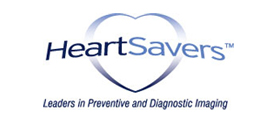
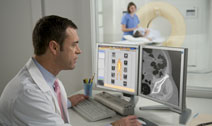
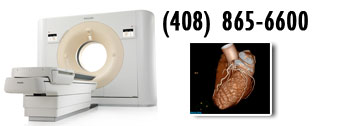
Each year about 1.5 million Americans will have
a heart attack with absolutely
no warning signs. For about half of those, the heart attack will be
fatal. The cardiac 64 CT scan provides 3-D images of the heart so detailed
heart disease can be detected even at the earliest stages. It is in the earliest
stages that heart disease is the most treatable.
Conventional angiography has been the diagnostic standard for determining heart disease (coronary artery disease). Over a million conventional angiographies are performed in the United States each year approximately 30% of these procedures reveal no abnormality or an abnormality that does not require surgery. While effective, angiograms are invasive, labor intensive and costly. Hundreds of thousands of Americans unnecessarily have conventional angiograms. These limitations have led to the need for a less invasive and less expensive test.
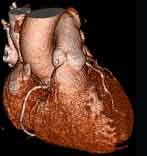
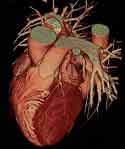
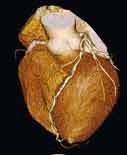
For many doctors and patients, the 64 CT scanner provides the opportunity to rule out the need for a conventional angiogram. It is none invasive and does not have the same risk of complications (such as heart attack, stroke, and bleeding) that can sometimes occur with conventional angiogram. Since, less invasive patient can resume their normal activities immediately following the test.
The new 64 cardiac imaging procedure
has proven to be a breakthrough in technology for the
diagnosis of heart disease. The procedure is safe, fast, lasting approximately
10 minutes, and is non-invasive.
Speed is extremely important in our ability to "freeze" the heart. Currently the
64 CT utilized at HeartSavers is the fastest scanner in the industry.
You could be a potential
candidate for a CT Angiography if you present the following risk factors:
-
A family history of heart disease
-
An elevated calcium score from a conventional CT Heart Scan
-
History of smoking
-
High blood pressure
-
High cholesterol
-
High triglycerides
-
Diabetes
-
Positive C-reactive protein
-
Any of the factors in combination with a sedentary lifestyle